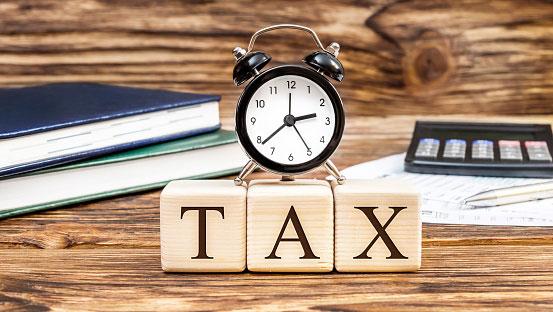The use tax can be described as a tax charged to purchases made by suppliers not part of the state in which one lives and on which sales tax wasn't already assessed. The purchaser is responsible for paying the tax for use. The amount due is the tax rate that applies to the location of the buyer, and tax is paid to the entity with authority over the location of the buyer.
A good way to think about the concept of use tax is that, theoretically speaking, every purchase made by buyers must be tagged with the tax of sales - which is considered sales tax when the seller is charged the tax and pays the proceeds to the government. It is also classified as a use tax when the buyer must pay tax towards the federal government. The most common use tax scenario is when a buyer purchases items from outside the state (for example, from an Internet retailer) while the retailer (not having a presence in the state where the buyer is located) is not required to collect sales tax on the transaction.
Use tax generally depends on the price at which you purchased the asset. For instance, if a locally-imposed sales tax of 7% and an asset was purchased at $1,000, the purchaser has to pay a use tax of $70. However, the situation is not as obvious when the user has built an asset, like self-built equipment. In this instance, there are many possible methods of determining the base on which the use tax is determined.
Breaking Down Use Tax
The use tax rate is the same as the local sales tax and includes local and state sales tax. If a resident does not pay the use tax could be in danger of being penalized with interest and penalty. For instance, California residents must pay sales tax on furniture, gifts, toys, clothing, cars, mobile homes, and even aircraft. If you are a Californian who buys clothing from the California retail store, that store will collect the sales tax from the purchaser when they purchase the item and pay the tax authority. Taxes are not due.
Imagine that a Californian purchased clothing through an online retailer in Oregon. According to Oregon law, the retailer doesn't collect sales tax on items; however, the retail buyer is still required to pay a tax on the use of the purchase of clothing in the form of a tax to the California tax authority, which is known as the Board of Equalization. In contrast, when a Californian bought groceries in Oregon and didn't pay sales tax for the purchase, then generally, there is no tax due since it is the case that California doesn't tax the majority of the groceries.
Retailers are generally not required to charge sales tax for purchases made by consumers in states in which the retailer doesn't have an actual location (called "nexus") such as a warehouse, sales office, or sales representative; therefore, the burden falls on the buyer to calculate and pay tax to their state government. If a company is liable for sales tax to a specific government will depend on the way the government defines nexus.
A nexus can be described as a physical location; however, the definition of "presence" is not limited to having a physical office or warehouse. Having employees in a state could be a nexus, just as having an affiliate, for example, a partner website that directs visitors to your site to earn a portion of profits. This scenario is a good illustration of the tensions between e-commerce and sales tax.

Assessing the Use Tax
Use tax is just like its sales tax imposed on the consumer who purchases the tangible product or service; however, the distinction is in calculating the tax and how it's accounting for. The sales tax is gathered by the seller, who acts as an agent for the state and thereby can pay taxes to the state for the buyer's benefit. In contrast, taxes imposed on use are self-assessable and paid by the final buyer. It is usually less difficult to enforce than sales tax, and in reality, it is only applicable to huge purchases of tangible items.
The purpose of a use tax is to shield retailers from unfair competition from sellers outside of the state who aren't required by law to collect taxes. Additionally, it is enacted to make sure that every one of a state's citizens can contribute to local and state-wide initiatives and programs, no matter the location they shop. Similar laws are in place in all states, not only in California. All 45 states are subject to a usage tax law as of 2018.








